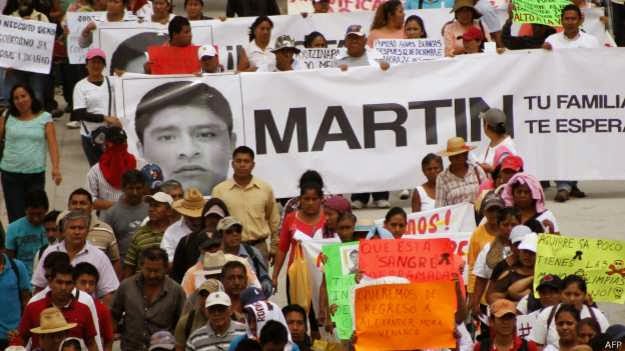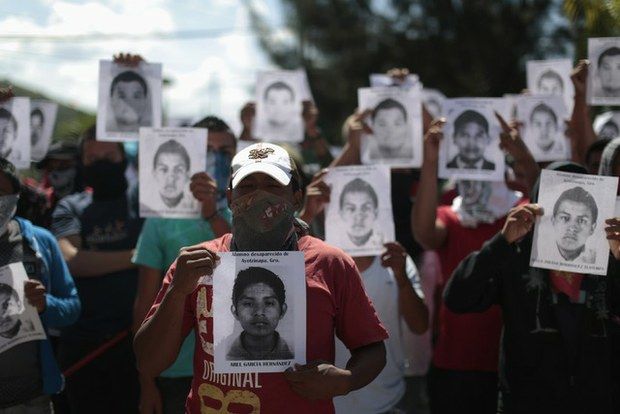Cuba 53 years after the Revolution
Step by step, the bureaucracy is dismantling the historic achievements
23/01/2012
By Eduardo Molina
Thursday, January 5, 2012
Official rhetoric insists that "53 years after the victory of the Revolution, Cuba is absorbed in modernizing its economic model, a process designed to guarantee the continuity and strengthening of the socialist system adopted by the Island" (Prensa Latina), but the "pro-market" and "austerity" measures that have been adopted are, step by step, breaking up what remains standing of the fundamental accomplishments of the Revolution, preparing the ground for capitalist restoration.
Gradualism
Commanding Officer Raúl Castro confirmed both the direction chosen and "gradualism" in applying the "Guidelines for Economic and Social Policy" approved at the Sixth Congress of the Cuban Communist Party. According to the December 31, 2011 edition of Granma, that quotes his speech at the final meeting of the Council of Ministers, he warned that "modernizing the economic model is not a miracle that can be performed overnight, as some people think; its total deployment will be achieved gradually over the course of the five-year period, since it has a lot of detailed work, planning and coordination, both on the legal level and in the thorough preparation of everyone who will take part in its practical execution.... The intention of what we have to do is contained in the closing speech in the National Assembly: ’We will continue making everything agreed upon a reality, slowly but surely, with the required comprehensiveness and gradualness, without haste or improvisations, by contributing to overcoming the old dogmatic mentality and correcting in a timely manner the errors that we could make. We will not neglect, for an instant, the unity of the majority of Cubans around the Party and the Revolution.’" In his speech, Raúl had insisted that, "As was to be expected, exhortations, well-intentioned and hostile, that we should quicken the pace, were not lacking, and an attempt is being made to impose on us the sequence and scope of the measures to be adopted, as if it had to do with something insignificant and not with the fate of the Revolution and the Fatherland." Thus he kept his distance from both the "dogmatists," who are reluctant to accept the changes, and the "impatient people," who want an immediate leap, in what appears to be a serious reproach to the different wings of the ruling bureaucracy.
"Pro-market" measures of restructuring and "austerity"
Since the second quarter of 2011, new measures have been implemented to "continue the transformations of the Cuban economic model and the implementation of the Guidelines of the Sixth Party Congress," as the February 2, 2012 edition of Trabajadores, representing the CTC trade union center, says, by gradually expanding the spaces for private initiative, in production, commerce, and access to credit. Among them, the buying and selling of housing and vehicles has been authorized; the leasing of state properties to self-employed workers has been regulated; the direct sale of productive agricultural lands to tourist centers, etc., has been authorized. New rules in the banking system are facilitating commercial and financial operations "to self-employed workers, to small farmers, and to those who are practicing other forms of private-sector management." Furthermore, individuals were authorized to "market their products and services to state institutions, including the budgeted units." And finally, the self-employed sector was permitted to hire subcontracted personnel.
In agriculture, some 170,000 individuals have already leased around 1,375,000 hectares of state lands, being authorized to sell their products on the market, on the fringes of the government’s stockpile. The self-employed sector was expanded in 2011, encompassing some 360,000 people in more than 90 spheres of activity, many of them in services and commerce, and the government is trying to encourage that further, in order to steer to the sector the government workers that they plan to remove, under the pretext of "inflated staffs." The policy of massive layoffs is colliding with a muted resistance, which is why its advances are slow, and the deadlines were being extended, from 3 to 5 years. The Minister of Economy, Adel Yzquierdo, warns that this year, "a decrease of 170,000 employees in state entities and the increase of 240,000 in other, non-governmental forms, will take place." That is, it will continue with the withdrawal of workers and reorganization in several areas, including education, health care and social services, as was already done before in the sugar industry and is being planned to do during 2012 in the Post Office. This, while the campaign against "egalitarianism" and for greater productivity continues, exerting pressure on the working class rank and file, through managers and union bureaucrats.
A structural crisis
In the framework of a profound international capitalist crisis, conditions for the Cuban economy are turbulent. Although it achieved a certain growth (in 2011, the GDP grew by 2.5%, less than the planned 3%), and this new year, a modest 3.4% was anticipated (report from the Minister of Economy Adel Yzquierdo). The most obvious imbalances, a delay in investment plans and a need to import basic foods massively (more than 1.5 billion dollars annually), as well as poor performance (low productivity and one of the smallest rates of growth in Latin America), reflect the structural crisis of the Cuban economy, where the disastrous management of the parasitic bureaucracy, with its privileges and corruption, is combined with imperialist pressure, to accumulate explosive contradictions, which the bureaucracy seeks to escape by strengthening pro-capitalist tendencies, to the detriment of the nationalized economy. Although a qualitative leap has not yet taken place, the measures that have been adopted are increasingly adapting the economic system to the "laws of the market" and encouraging, in the bureaucracy, groups ready to retrain as a bourgeoisie, although, at first, it will be under the cover of a "mixed economy."
Disintegration underway
Cuba, small, isolated and industrially backward, was never "socialist," as Castro’s propaganda claims. But the Revolution, with the nationalization of the means of production and of land, the social liquidation of the bourgeoisie as a class, and the break with imperialism, achieved the bases of a transitional society, in spite of the extremely serious deformations that half a century of bureaucratic rule has entailed (this is what we Trotskyists call a deformed workers’ state). The ruling bureaucracy is putting into practice a plan that dismantles the nationalized economy and augments the private sector, attempting a "Cuban road to capitalism" with a "socialist" label, gradual and led by the Cuban CP, that can only lead to the disaster of capitalist restoration and a new submission to imperialism.
Preparing "safety valves"?
Growing skepticism and dissatisfaction among groups of the population, like young people, faced with daily shortages, the growth of social inequalities and the bureaucratic dictatorship, are alarming the leadership, in view of the possibility that processes of resistance will develop. Gestures like suspending the sentences of some 2,900 prisoners, announced at the end of 2011, as well as Raúl Castro’s statements that it would be possible to liberalize the immigration policy, are in keeping with this sense. And it also leads to intensifying the government’s strategy of agreements with the Church, an intermediary in the negotiations with imperialism, that has turned the Catholic hierarchy into a privileged negotiator and a "tolerated opposition." Openness towards the clergy was seen in the magnitude of the recent celebration of the 400th anniversary of the discovery of the statue of the Virgin of Charity of Cobre ("Patroness" of the Island), and in the preparation for the visit of Pope Benedict XVI on March 26.
Towards the First Conference of the CCP
In this panorama, on January 28, the First Conference of the Cuban CP will meet, whose "Draft Document" emphasizes the need to revise the methods, to revitalize the heavy apparatus, by including more women, blacks, etc., and to face up to the deterioration of its hegemony over the masses. There is no doubt that it will be marked by the need to organize the "succession" after the exhaustion of the "historic generation" around Raúl and Fidel, whose average age hovers around 80 years, but lacks replacements for the leaders with the authority to arbitrate among the different wings of the bureaucracy and lead the plan through the enormous tensions that are accumulating.
A workers’ socialist program for Cuba
Faced with the bureaucracy’s program and imperialist pressures for a rapid "economic and political opening-up," the way forward is not to serve as advisers for some "reformist" group of the leadership, nor to give in to the position that if the economy is liberalized, "democratization" will be made easier, as some voices seem to believe within the socialist opposition in academic, cultural and youth circles, that has been expanding in recent years. A program of political revolution is needed, to reorganize the nationalized economy, protect the interests of the working class and put an end to the domination of the bureaucracy and its privileges. This passes through demolishing the "one-party" regime, winning the free organization of unions and of all those political tendencies that will defend the conquests of the Revolution, to impose a real workers’ and socialist democracy, through a mobilization, with dual power based on workers’ and people’s councils, and promoting the economic and political unity of the continent in a Federation of Socialist Republics of Latin America.
January 5, 2012








![Declaration of the Movimiento de los Trabajadores Socialistas [MTS] facing the brutal murder and disappearance of the normalistas students of Ayotzinapa](https://www.ft-ci.org/IMG/arton8590.jpg?1687978277)

















